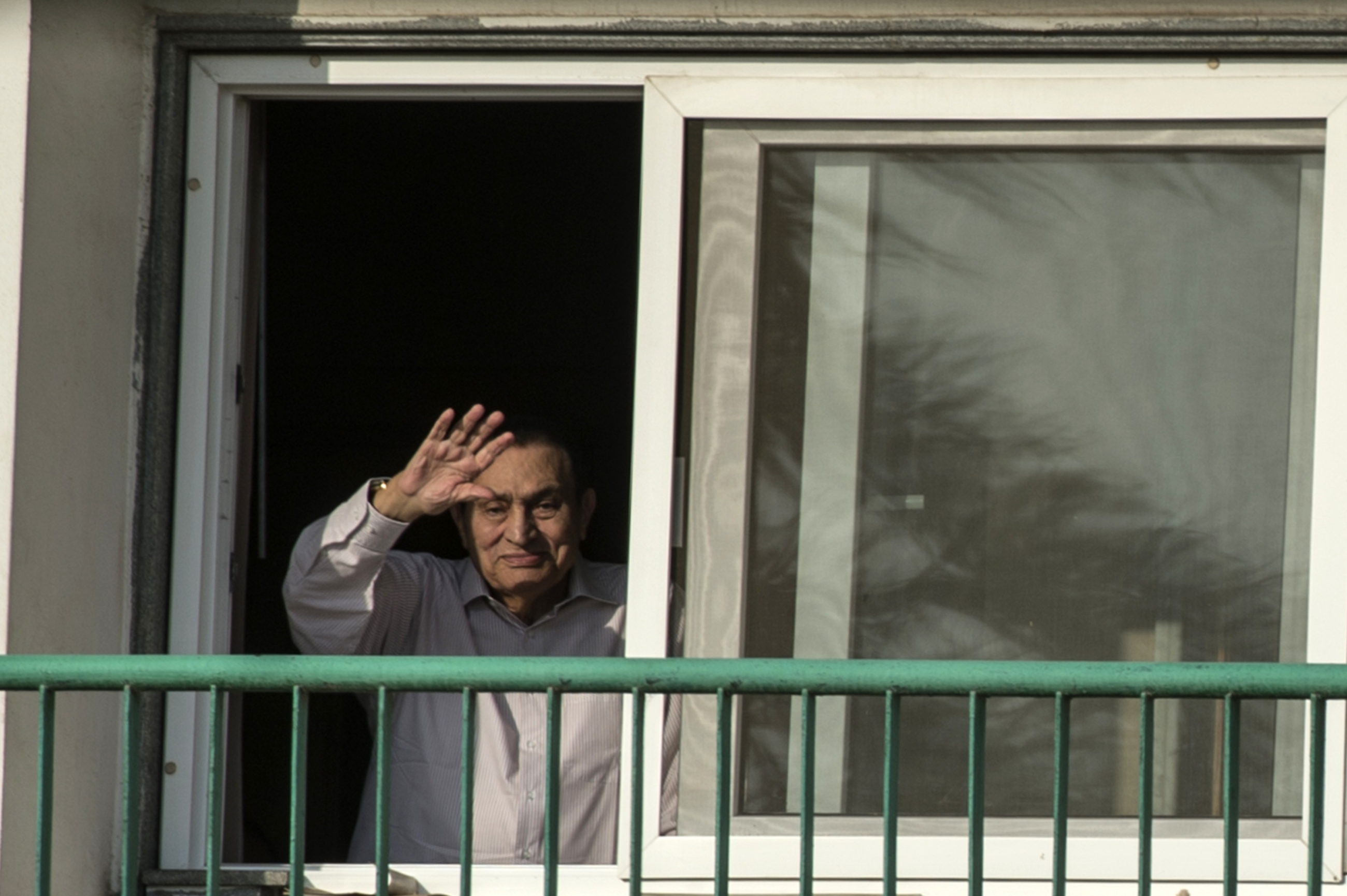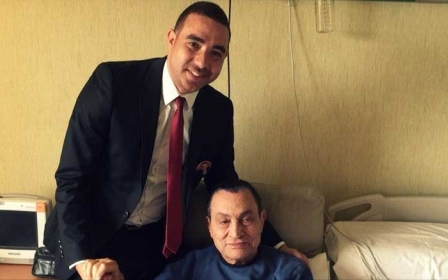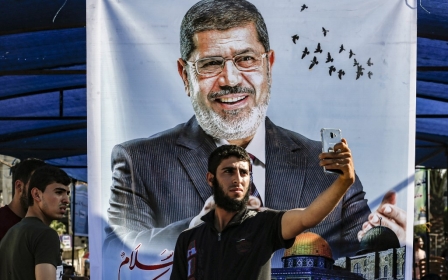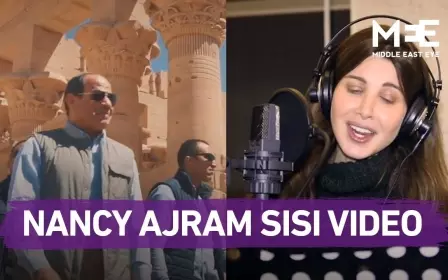Missing Mubarak: Egyptians deal with economic, social woes through memes

"I swear, in my day people would brush their hair with gas and fuel!"
Such is the caption accompanying a photograph of former Egyptian President Hosni Mubarak making the rounds on social media platforms in recent days.
As Egypt continues to implement the International Monetary Fund's (IMF) economic reform programme, poor and middle-class Egyptians have been bearing the brunt of austerity measures as their purchasing power dwindles with each passing increase in the prices of public utilities and basic commodities.
As a result, memes and comedic posts poking fun at the dip in living conditions since Mubarak was deposed in 2011 have flourished on the internet.
The most recent reform to be implemented took place earlier this month, when Egyptians saw fuel subsidies cut, increasing fuel prices by 16 to 30 percent.
This fifth hike in fuel prices since Abdel Fattah el-Sisi became president in 2014 has prompted a new wave of online reactions and memes about the decreasing standard of living for many Egyptians.
Many of the memes posted hinted at how much "better" life was during Mubarak's 30-year rule.
Translation: Hello to those who got rid of me and are left begging afterwards.
The memes also addressed the spike in basic food prices, as food subsidies many lower-income households had heavily relied on have also been targeted.
Translation: Mubarak: Me, or chaos? Sisi: Me, or potatoes?
“On paper, these reforms should be bringing about a positive change in the country," Alexandria resident Ahmad Ben Ali told Middle East Eye. "But really, it is only a specific class of Egyptians who benefit, and the rest of us are living in increasingly difficult circumstances."
Some of the posts appeared to portray Mubarak as the "lesser of two evils" in comparison with Sisi, even teasing Egyptians about issues unrelated to the IMF’s economic and social reforms.
One post joked about how this year's Muslim holy month of Ramadan was much shorter - and less blessed - than when Mubarak was in power.
Translation: I swear, never did we see Ramadan pass by so quickly during my days... Even the month of goodness can't stand to stay around after I've left!
Amid a stifling atmosphere under Sisi, with freedom of speech and political opposition severely curtailed, memes have grown as outlets to vent Egyptians' frustrations.
“We have no other way of expressing ourselves and being taken seriously," a young Alexandrian who requested anonymity told MEE. "During the days of the revolution in 2011, I saw Egyptians having serious, open discussions about politics and everyday issues affecting us.
"Now all we have left is to joke about it, even if it is dark humour."
Translation: When you remember the days of Hosni Mubarak... Everyone turn and give each other a slap [for what we got ourselves into].
Following Egypt's recent surprise loss in the Africa Cup of Nations (AFCON), some Egyptian social media users even took to spreading memes about the country’s once successful track record in the tournament, having never finished lower than third place as hosts of the competition during the Mubarak era.
Translation: The days when we would win the championship before even getting to the pitch. Bottom photograph shows Egyptian actor Adel Imam, in a scene from a movie in which he reminisces about great memories with a friend who has Alzheimer's.
Although a number of memes were posted from pro-Mubarak pages on Facebook and Twitter, some posts have gone viral beyond Mubarak sympathisers, with one video of the former president explaining why cutting fuel subsidies would negatively affect those from lower-income backgrounds being shared over 1.5m times.
While Ben Ali said he partly understood the impetus behind the jokes about Mubarak, he cautioned against interpreting them as uncritical nostalgia for the 30-year ruler.
“The situation was, of course, better under Mubarak, but that’s not to say it was good. There was repression, poverty and anyone who opposed him would be imprisoned," he said.
“But what’s happening now is an intensification of all of these problems. I certainly don’t want the current government to stay in power, but neither do I think going back to Mubarak’s days is the answer.”
Sisi's ongoing repression of his critics and supporters of the 2011 revolution saw a new turn last week, when the administrator of a pro-Mubarak Facebook page was arrested for "spreading false news" and "misusing social media".
The arrest of a Mubarak supporter is something many Egyptians had not anticipated and set a new precedent under Sisi’s rule for a crackdown on anyone who might oppose the government.
Dozens of Egyptian political activists and journalists have been held for years in pre-trial detention on charges of “spreading false news” and have yet to be released.
Last summer, Egypt introduced new social media laws that regulate accounts with more than 5,000 followers, allowing the state to block these accounts or fine their users without having to obtain a court order.
“I feel like I’m living in a large prison in this country,” Ben Ali said. “One can’t even express their opinion without being thrown in jail."
Middle East Eye propose une couverture et une analyse indépendantes et incomparables du Moyen-Orient, de l’Afrique du Nord et d’autres régions du monde. Pour en savoir plus sur la reprise de ce contenu et les frais qui s’appliquent, veuillez remplir ce formulaire [en anglais]. Pour en savoir plus sur MEE, cliquez ici [en anglais].




